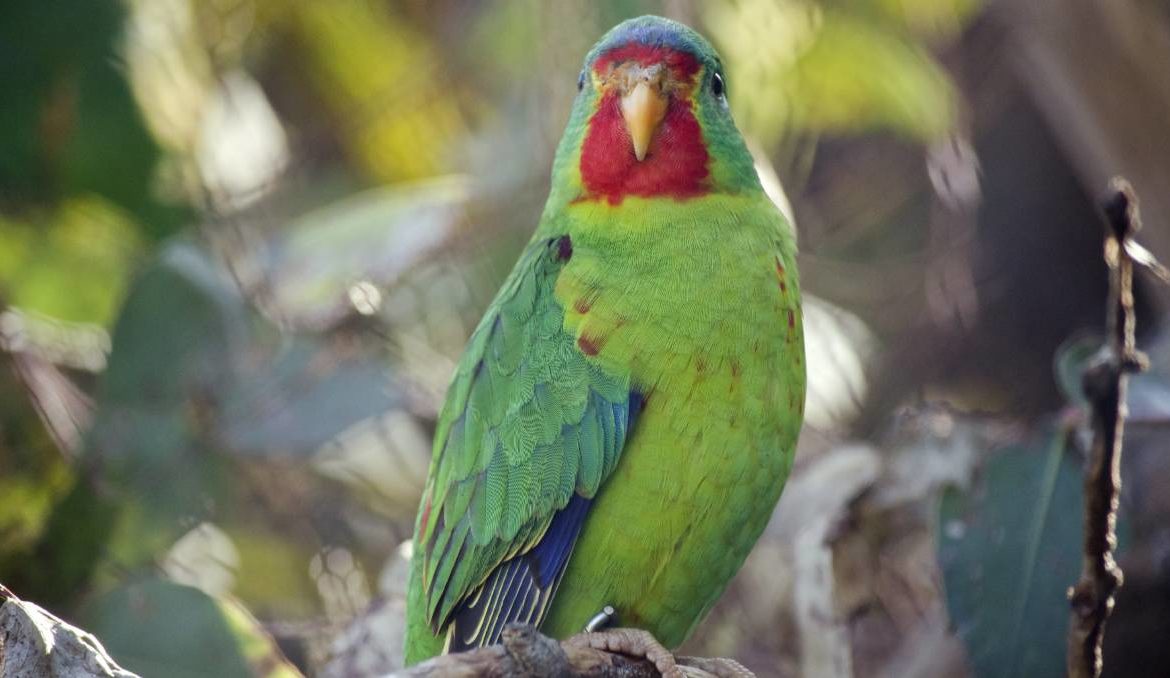news, latest-news,
If I were to make a bold, perhaps rash, assertion of the most important concept in science, it could be stated in three words: Everything is connected. The greatest triumph of science is also its greatest weakness. By studying ever more about ever narrower fields, we can lose sight of the whole. The inverse is to see the nature as a system where every part is connected, either directly or indirectly. These form deep relationships in a system that behaves in very different ways to the parts when seen in isolation. An ecologist studies these relationships to understand the functioning of the system beyond its individual parts. The children’s rhyme captures a glimpse of how this works. The old woman swallowed a bird to catch the spider, to catch the spider, to catch the fly, and so on. And, in the grim ending, the system collapses and the woman dies. A less trivial example would be, say, the swift parrot. With less than a thousand remaining, it’s now classed as “critically endangered”. Swift parrots connect geographically distant regions of Tasmania and Victoria as they migrate, feeding on the blue gum trees eucalypt blossoms. On one level, you might say it’s just another pretty bird. But on another more serious level, these birds are part of a dispersed ecosystem, and their role can be difficult to gauge. Perhaps they transport seeds, pollen or some other ingredient that the forests need. Or perhaps their nesting behaviour affects other species in ways that we do not understand. Probably the first ecologist was Alexander von Humboldt (1769 – 1859), whose remarkable insights combined ecology, geography and even social sciences. In this, he might also be considered the first “Earth System” scientist that views the entire planet as a system. Of course indigenous people around the world have long understood their environment as a system. While today, we know that food comes from supermarkets, wrapped in plastic, their survival depended on intimate knowledge of their environment. Their impact on an ecosystem was obvious and of direct importance because, if they ruined it, they might starve. The astonishing success of civilisation hides from us the fact that we are a part of nature, not its masters. Where our food and our smartphones come from is hidden as much as where they go when we discard them. If a resource is depleted, or a landscape denuded, it’s invisible until there’s a shortage. Markets are extremely good at finding alternatives, which obscures these impacts. For years, plastic waste mostly disappeared, but now we’re learning about the great garbage patches accumulating in the oceans. So while an ecosystem looks like something “out there” in national parks and wild places, we still live within it. And, as we enter the Anthropocene, that connection is more profound than ever. The Fuzzy Logic Science Show is 1100am Sundays on 2xx 98.3FM. Send your questions to [email protected] Twitter @FuzzyLogicSci Podcast FuzzyLogicOn2xx.Podbean.com
/images/transform/v1/crop/frm/3BUUzmFAhrhLyX9rFCubPq5/81d0c411-d5bc-4bb9-9725-40766ee83478.jpg/r2_241_4926_3023_w1200_h678_fmax.jpg
If I were to make a bold, perhaps rash, assertion of the most important concept in science, it could be stated in three words: Everything is connected.
The greatest triumph of science is also its greatest weakness. By studying ever more about ever narrower fields, we can lose sight of the whole.
The inverse is to see the nature as a system where every part is connected, either directly or indirectly.
These form deep relationships in a system that behaves in very different ways to the parts when seen in isolation. An ecologist studies these relationships to understand the functioning of the system beyond its individual parts.
The children’s rhyme captures a glimpse of how this works. The old woman swallowed a bird to catch the spider, to catch the spider, to catch the fly, and so on. And, in the grim ending, the system collapses and the woman dies.
A less trivial example would be, say, the swift parrot. With less than a thousand remaining, it’s now classed as “critically endangered”.
Swift parrots connect geographically distant regions of Tasmania and Victoria as they migrate, feeding on the blue gum trees eucalypt blossoms.
On one level, you might say it’s just another pretty bird. But on another more serious level, these birds are part of a dispersed ecosystem, and their role can be difficult to gauge.
Perhaps they transport seeds, pollen or some other ingredient that the forests need. Or perhaps their nesting behaviour affects other species in ways that we do not understand.
Probably the first ecologist was Alexander von Humboldt (1769 – 1859), whose remarkable insights combined ecology, geography and even social sciences. In this, he might also be considered the first “Earth System” scientist that views the entire planet as a system.
Of course indigenous people around the world have long understood their environment as a system. While today, we know that food comes from supermarkets, wrapped in plastic, their survival depended on intimate knowledge of their environment. Their impact on an ecosystem was obvious and of direct importance because, if they ruined it, they might starve.
The astonishing success of civilisation hides from us the fact that we are a part of nature, not its masters. Where our food and our smartphones come from is hidden as much as where they go when we discard them. If a resource is depleted, or a landscape denuded, it’s invisible until there’s a shortage.
Markets are extremely good at finding alternatives, which obscures these impacts.
For years, plastic waste mostly disappeared, but now we’re learning about the great garbage patches accumulating in the oceans.
So while an ecosystem looks like something “out there” in national parks and wild places, we still live within it.
And, as we enter the Anthropocene, that connection is more profound than ever.
The Fuzzy Logic Science Show is 1100am Sundays on 2xx 98.3FM.







